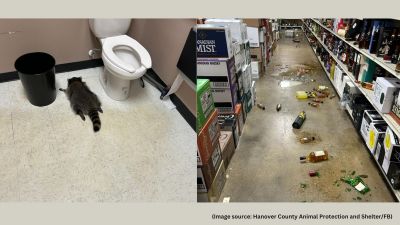Jet fuel prices crash, but airlines’ surcharge soars
Airlines continue to levy a hefty Rs 2,700 surcharge per ticket despite a crash in jet fuel prices by more than 50 per cent in the last six months.

Airlines continue to levy a hefty Rs 2,700 surcharge per ticket despite a crash in jet fuel prices by more than 50 per cent in the last six months. In fact, the surcharge today is almost four times what it was exactly two years back when aviation turbine fuel prices stood at Rs 36,150 per kilo litre in Delhi during December 2006.
This has not gone unnoticed by Civil Aviation Minister Praful Patel, who today asked airlines to prune fares and give a fillip to passenger traffic that has dipped 1.94 per cent in the first 10 months of this calendar year. “It is imperative (on the part of airlines) to respond, now that ATF rates have been brought down,” said Patel outside Parliament.
ATF prices today are actually lower than the December 2006 price levels of Rs 36,000 per kilolitre in Delhi. The surcharge on a long haul (over 750 km) air ticket was about Rs 750 then. Now, it is Rs 2,700, even after airlines cut the surcharge by Rs 400 last week. On short haul (less than 750 km) flights, the surcharge today is Rs 1,950.
While the concept of fuel surcharge is not really new, airlines withdrew the surcharge based on ATF prices. But in the last four years, surcharges have become a part of the ticket cost and more often than not are higher than the basic fare itself. So much so that the surcharge is 800 per cent higher when compared with a surcharge of Rs 300 on long haul flights in early 2006, when jet fuel cost Rs 40,408.02 per kilolitre in New Delhi.
ATF is directly linked to global crude oil prices that had peaked to $147 a barrel in July this year with ATF prices shooting up to Rs 71,028.26 per kilolitre in August 2008 in Delhi. At this level, the surcharge stood at Rs 2,250 per ticket. But in the last three months, global crude oil prices have plummeted to $45 a barrel.
When contacted, a National Aviation Company of India Ltd executive admitted that no absolute withdrawal of fuel surcharge has taken place in last four years. “A 20 per cent fall in fuel prices is negated by an appreciating dollar. For an airline, 70 per cent of its total costs are billed in dollars, which have gone up now. Before the start of this financial year, costs were worked out at a certain level of ATF prices. But, the prices rose sharply and have slid during the last four months only,” the executive said.
The NACIL executive added that the recent cut announced by the airline had taken into account the expected downward revision in prices during December. Kingfisher Airlines, which has a 30 per cent share of the domestic market, today said that it will take a decision on paring fares on December 20.
- 01
- 02
- 03
- 04
- 05






























